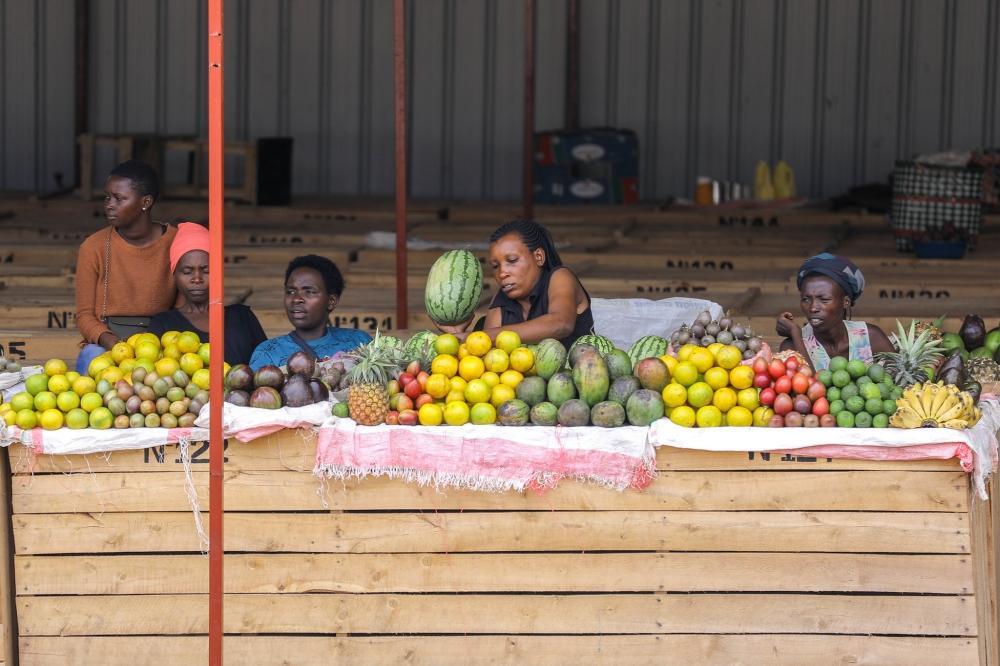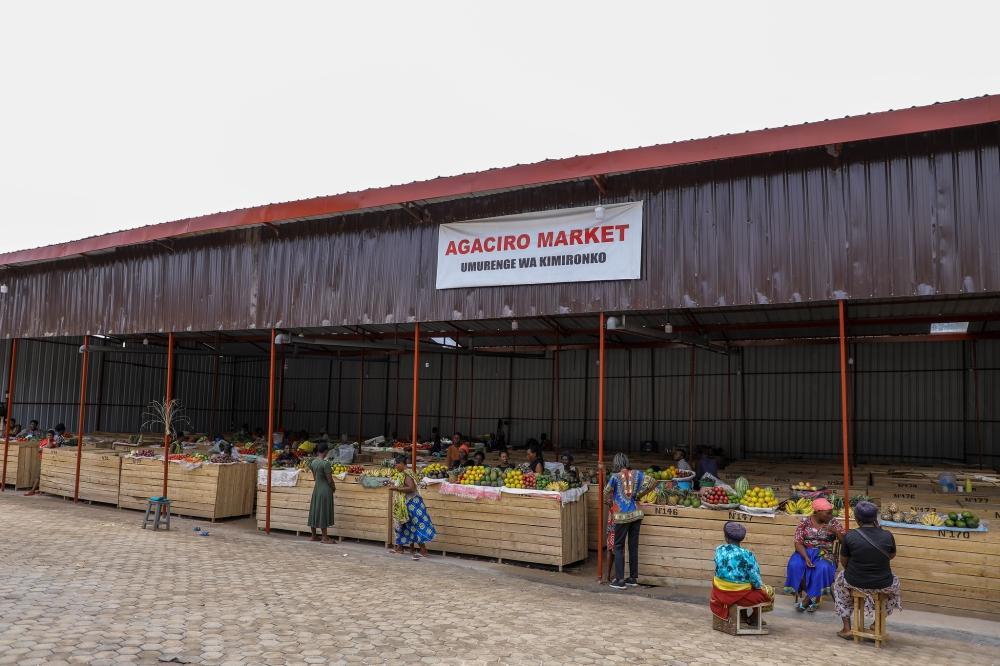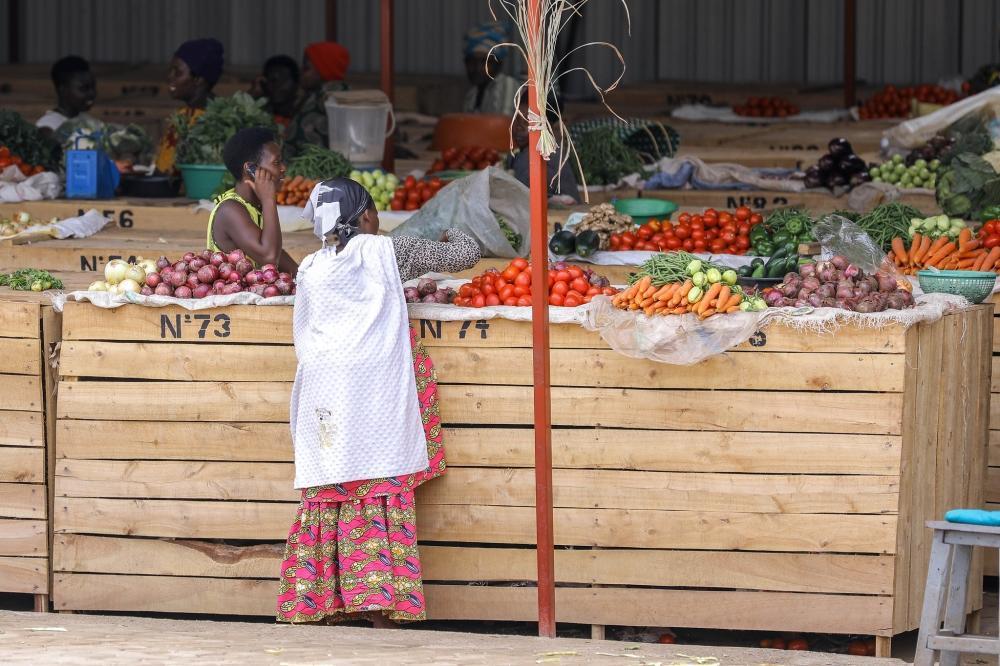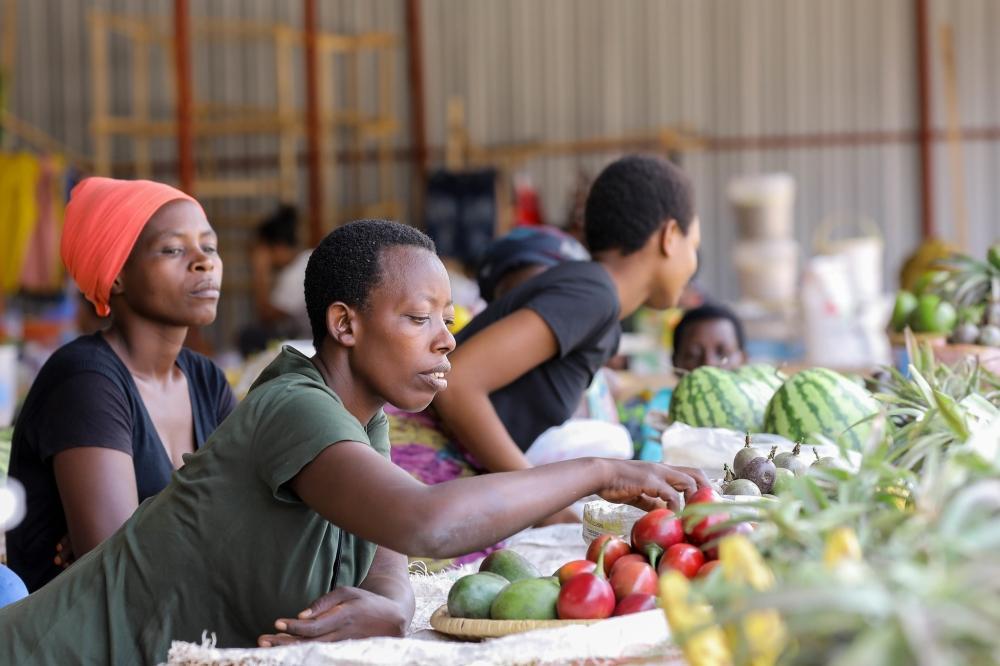Africa-Press – Rwanda. For nine years, Chantal Komezusenge made a living as a street hawker. Every day was a gamble and that included evading authorities, worrying about her children at home, and struggling without health insurance.
That changed in July 2022, when she was given a free stall at Agaciro Kimironko Mini-Market, one of 264 stalls reserved for former street vendors.
“The life of street hawking was not easy. We were always anxious because our trade was illegal. I used to leave my three children at home, but they were always worried for me,” she recalls.
Without a steady income, she had no way to join savings groups or afford health insurance. But inside the mini-market, she joined one of 30 savings groups, each with 25 to 30 members enabling her to access small loans.
“We can now pay health insurance, school fees, and other needs. I started with a Rwf50,000 loan, then Rwf75,000, and today I’m eligible for Rwf150,000. My goods are now worth Rwf200,000,” she says, adding that training opportunities have further strengthened her business.
From hawking to entrepreneurship
For John Peter Hirwa, a married father of two, the shift from street hawking to market trading has been transformative. Once peddling wooden utensils along three streets, he now runs a stall and a mobile money outlet inside the market.
“I started with Rwf30,000. Today my goods are worth over Rwf300,000. I can meet family needs, pay school fees, and I’m even planning to buy a plot in the next few years,” he says.
Agaciro Kimironko Mini-Market, one of 264 stalls reserved for former street vendors.
Other vendors, like Claudine Mbabazi, have adapted their businesses to market realities. Initially selling fruits, she switched to soap making when customer numbers were low. “When I invest Rwf20,000 in soap making, I make Rwf70,000 in a week,” she says. An Early Childhood Development (ECD) centre inside the market also allows women traders to focus on business.
City-wide initiative
City of Kigali Spokesperson Emma-Claudine Ntirenganya says 28 mini-markets have been built — 10 in Gasabo, 11 in Kicukiro, and 7 in Nyarugenge which accommodate over 4,200 former street vendors.
The initiative, supported by the City of Kigali, NGO Pro-Femmes/Twese Hamwe, and Local Administrative Entities Development Agency (LODA), offers free stalls for a year, low-interest loans under the VUP Financial Services programme, and exemptions from hygiene, sanitation, and trading licence fees. Vendors also receive financial literacy training and are encouraged to form savings groups.
Markets that failed
Despite these efforts, some markets were abandoned or demolished due to poor location or construction standards — among them Ziniya and Evergreen in Kicukiro, Gasogi in Gasabo, and Cyivugiza and Mumena in Nyarugenge.
In some cases, the city had already paid rent for spaces that vendors later deserted, prompting closures to cut losses. Authorities say they are now working with vendors to find suitable sites, such as the Nyarugenge Mini-Market, and enforcing penalties for those who abandon stalls without valid reasons.
Hawking persists
Fines have been introduced to curb illegal hawking — Rwf10,000 for both vendor and customer, and Rwf100,000 for shop owners supplying street vendors or offering them unauthorised trading spaces.
Yet challenges remain. Some genuine street vendors say they miss out on stalls because others impersonate them to secure spaces. Others, like 23-year-old single mother Pauline Umutoni, say there simply aren’t enough stalls.
“We hear there are markets for street vendors, but not all of us can fit in,” she says, still hawking in Nyabugogo, Gatsata, and Kimisagara. “I can’t afford the capital to start even in the free-stall markets.”
For those who have managed to make the transition, the mini-markets have provided stability, savings, and a chance to grow. But for many still on the streets, the promise of a stall — and the security it brings — remains out of reach.
For More News And Analysis About Rwanda Follow Africa-Press









